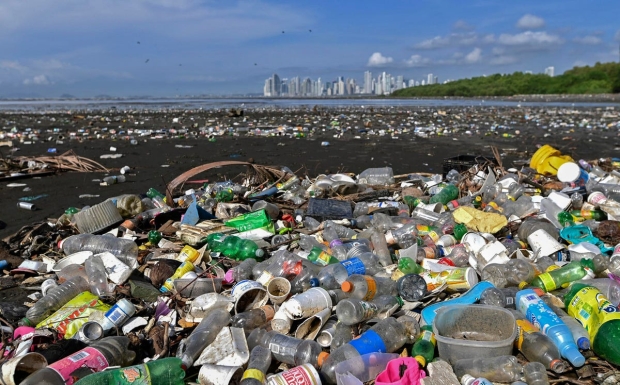Researchers from the Chalmers University of Technology in Sweden have identified a host of new plastic-degrading enzymes associated with an uptick in plastic pollution.
The researchers analyzed DNA samples from hundreds of locations globally and found a correlation between local levels of plastic pollution and the number of microbial enzymes capable of breaking down said plastic. Computer analysis identified plastic-degrading potential in the DNA, and the results were cross-referenced with official numbers for plastic waste pollution at the locations where the DNA was sampled.
"Using our models, we found multiple lines of evidence supporting the fact that the global microbiome's plastic-degrading potential correlates strongly with measurements of environmental plastic pollution-a significant demonstration of how the environment is responding to the pressures we are placing on it," said Aleksej Zelezniak, associate professor in systems biology at Chalmers University of Technology.
Over 30,000 homologous enzymes were identified, with the potential to degrade ten different types of common plastics. With eight million tons of plastic entering the ocean annually and some varieties taking hundreds of years to degrade naturally, these enzymes could provide a promising way to deal with the pollution.
The researcher's published an article in mBio, entitled 'Plastic-Degrading Potential across the Global Microbiome Correlates with Recent Pollution Trends,' which you can read here.



